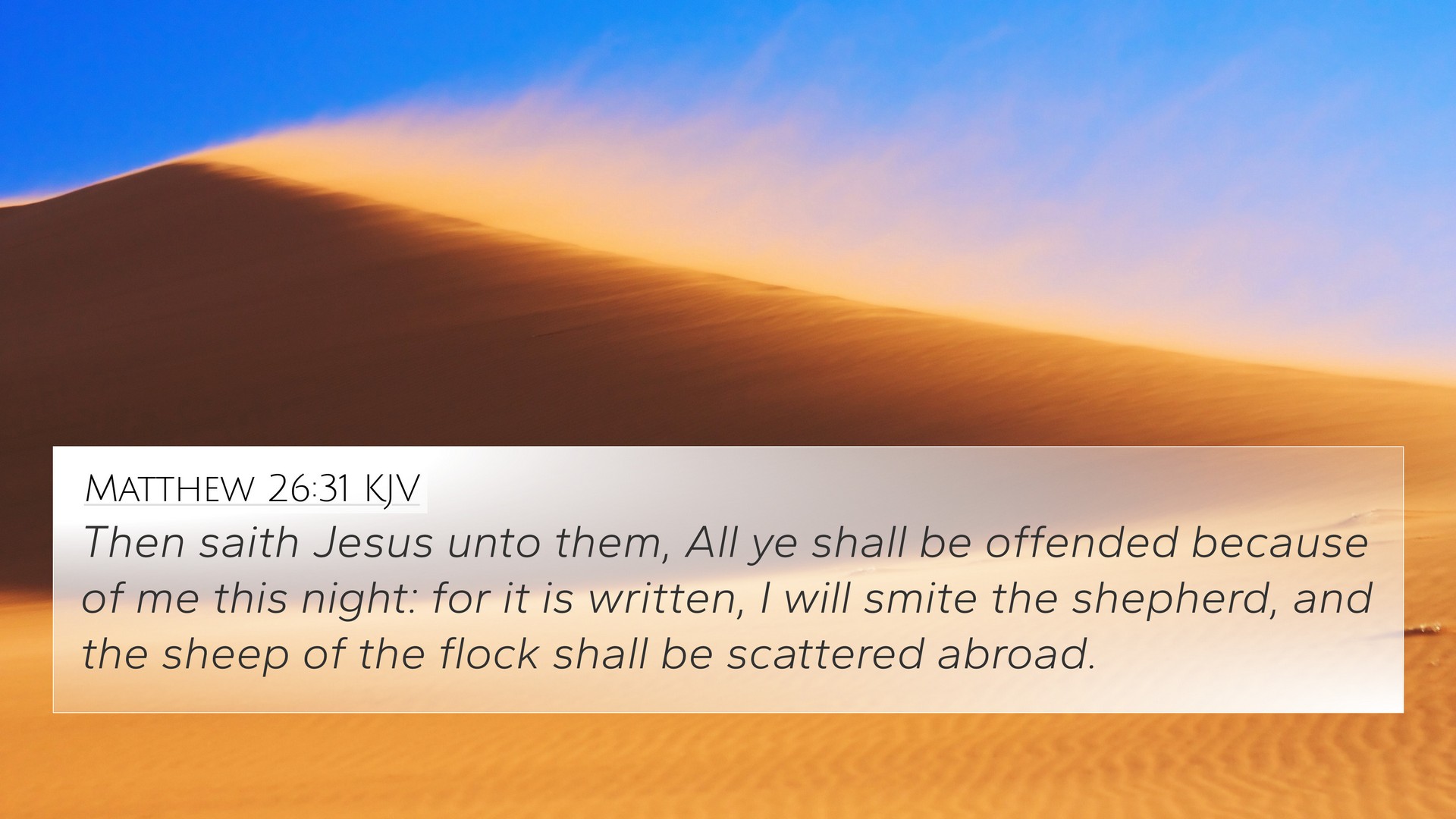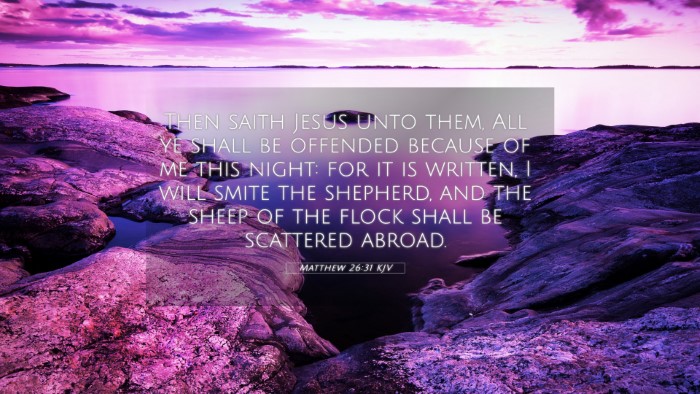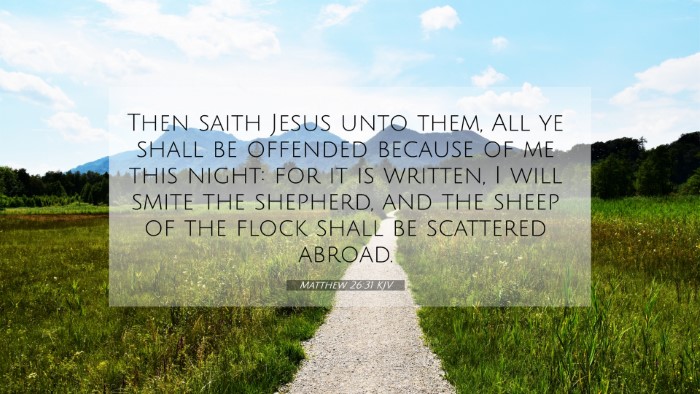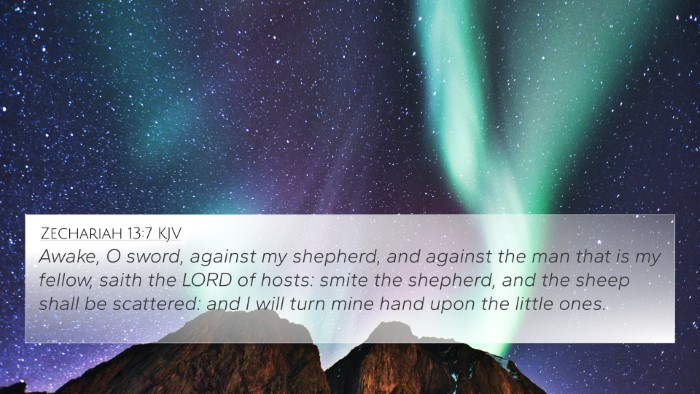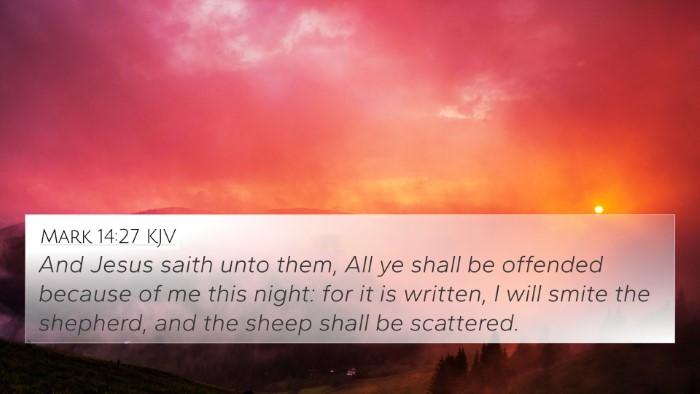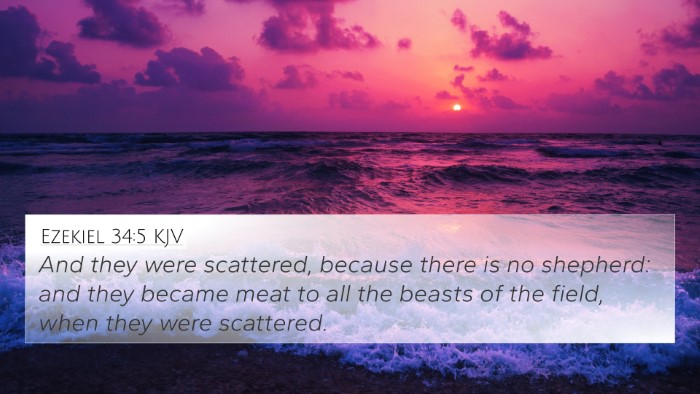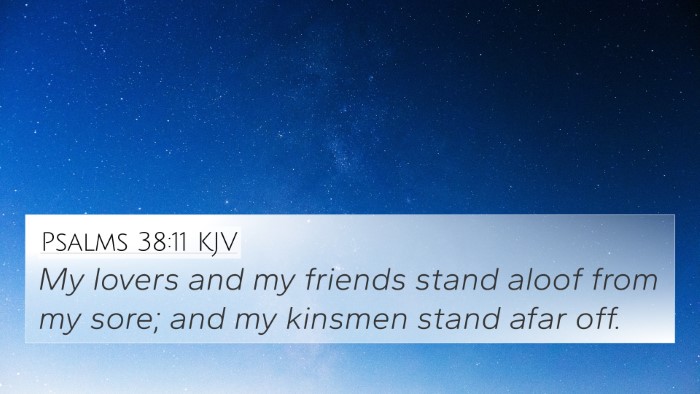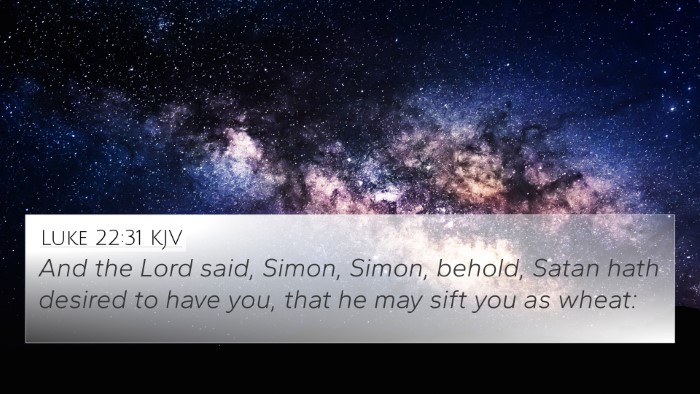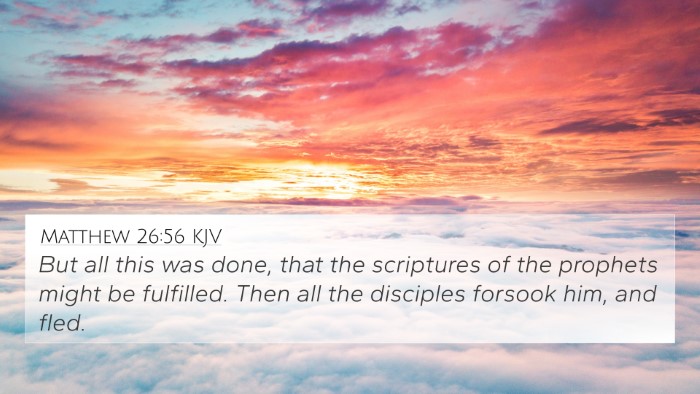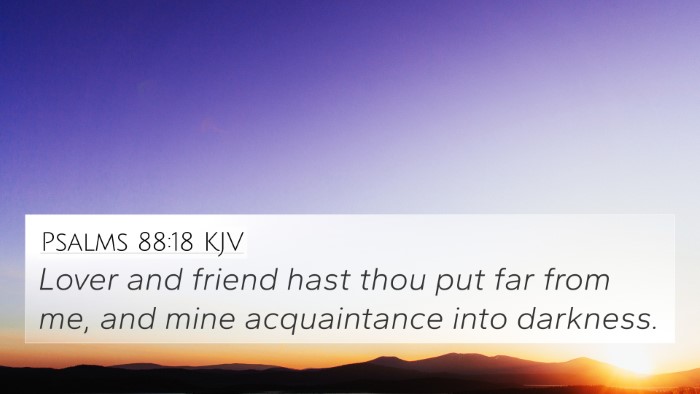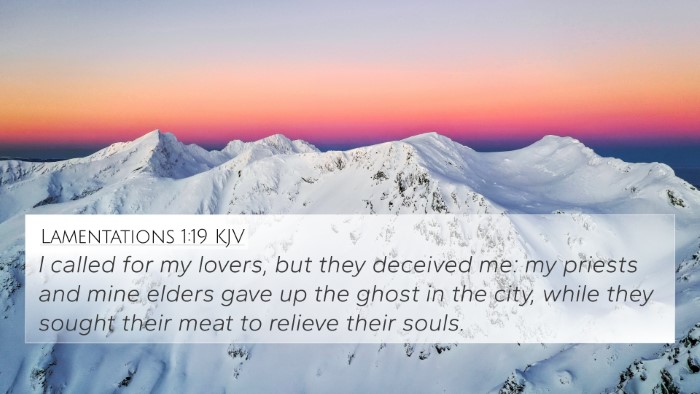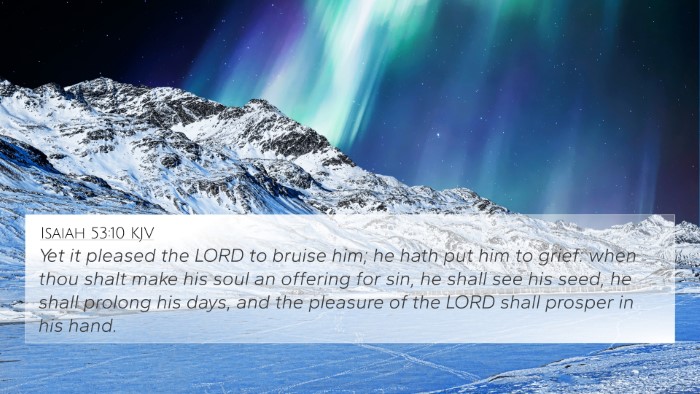Understanding Matthew 26:31
Matthew 26:31 states: "Then saith Jesus unto them, All ye shall be offended because of me this night: for it is written, I will smite the shepherd, and the sheep of the flock shall be scattered abroad."
Verse Analysis
This verse occurs during the Last Supper, a pivotal moment before the crucifixion of Jesus Christ. Jesus predicts the disciples' abandonment, referencing Zechariah 13:7, where it is foretold that the shepherd will be struck and the sheep will scatter. This moment reveals the fulfillment of prophecy and the human frailty of the disciples.
Insights from Commentaries
-
Matthew Henry:
Henry emphasizes the tragedy of the disciples’ forthcoming desertion, noting the profound sorrow it brings both to Jesus and to the followers. He highlights that this abandonment was not only prophesied but also inevitable given the frailty of human nature.
-
Albert Barnes:
Barnes articulates that the phrase "all ye shall be offended" reflects the impending crisis of faith that the disciples would face. He indicates that the striking of the shepherd symbolizes the momentary triumph of evil, leading to despair among the believers, yet it is also a part of God’s redemptive plan.
-
Adam Clarke:
Clarke further illuminates the prophetic aspect of this verse, connecting it to both the Old Testament and the New Testament. He discusses the symbolism of the shepherd and sheep, showcasing the relationship between Christ and His followers and how it underlines the necessity of Jesus’ sacrificial role.
Thematic Biblical Connections
The themes of abandonment and the fulfillment of prophecy in this verse resonate throughout the Bible. Below are noted Biblical cross-references that share these themes:
- Zechariah 13:7: "Awake, O sword, against my shepherd, and against the man that is my fellow, saith the LORD of hosts: smite the shepherd, and the sheep shall be scattered."
- Mark 14:27: "And Jesus saith unto them, All ye shall be offended because of me this night: for it is written, I will smite the shepherd, and the sheep shall be scattered."
- John 16:32: "Behold, the hour cometh, yea, is now come, that ye shall be scattered, every man to his own, and shall leave me alone: and yet I am not alone, because the Father is with me."
- Matthew 26:56: "But all this was done, that the scriptures of the prophets might be fulfilled. Then all the disciples forsook him, and fled."
- Luke 22:31-32: "And the Lord said, Simon, Simon, behold, Satan hath desired to have you, that he may sift you as wheat: But I have prayed for thee, that thy faith fail not."
- 1 Peter 5:4: "And when the chief Shepherd shall appear, ye shall receive a crown of glory that fadeth not away."
- Hebrews 13:20: "Now the God of peace, that brought again from the dead our Lord Jesus, that great shepherd of the sheep, through the blood of the everlasting covenant."
Inter-Biblical Dialogue
The connection between these verses deepens our understanding of the role of Christ as the shepherd and how His sacrifice resonates across both Old and New Testaments. Each cross-reference goes beyond mere textual linkages; they reveal a cohesive narrative of redemption, fulfillment, and the establishment of faith amidst trials.
Practical Applications
This verse serves as a reminder for believers to examine their faithfulness. The role of the shepherd is not just a title but an active, protective presence leading and guiding the sheep. It urges the faithful to rely on Jesus, especially in dire times of trials and tribulations.
Additionally, understanding the historical and spiritual contexts of these verses can enhance Bible study through various methods:
- Bible concordance for locating thematic connections.
- Bible chain references that illustrate the continuity of God's plan.
- Cross-referencing Bible study methods that cultivate deeper insight into scripture.
Conclusion
The insight gleaned from Matthew 26:31 through these commentaries not only elucidates its historical context but also offers rich theological understanding. As believers engage in cross-referencing biblical texts, they uncover a tapestry of relationships that deepen their faith and understanding of God's word.
